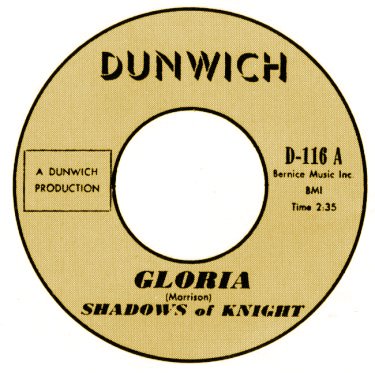
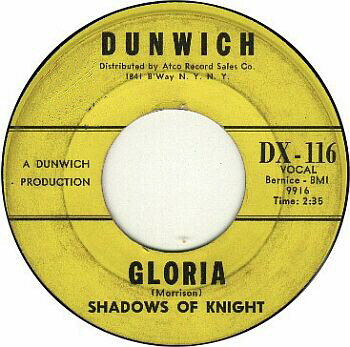
Above are first two pressings of the label's first single, "Gloria" by the Shadows of Knight The first label (above, left) was gold, and very plain, with no graphics. The doubled lettering was on the very first pressings. Later pressings (above, right) were yellow and had block letters, and stated Atco was the distributor. The more familiar pink and yellow label, like those below, was used still later. The first label is rarest, as only a few thousand copies were pressed with this label. The yellow label was used for probabably over 50,000 copies, after which the rest of the 1,000,000+ copies had the regular pink and yellow Dunwich label (see below).
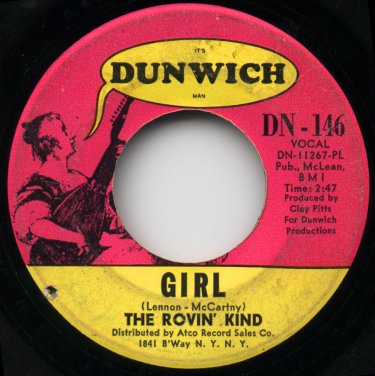
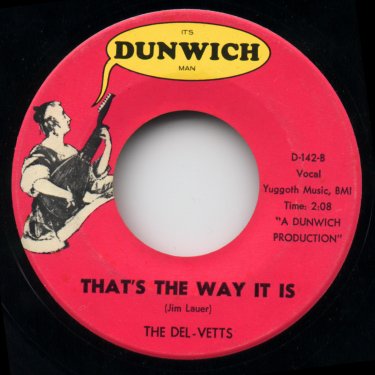
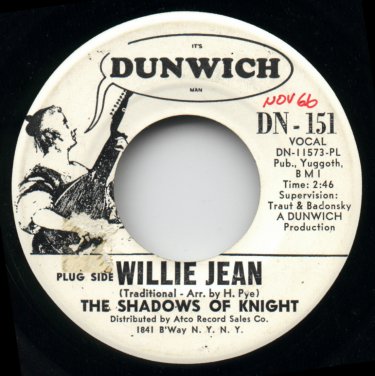
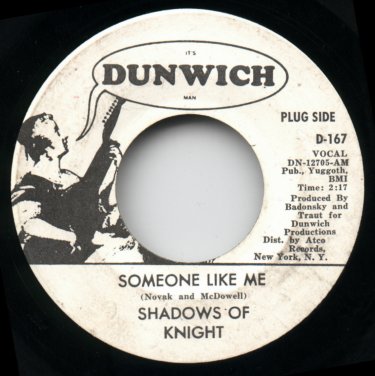
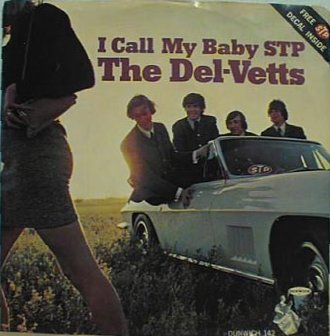 The majority of the Dunwich issues used variations of the labels above. The label was pink with the
Dunwich logo on the left (a woman in a flowing dress with a lute on her lap, and a yellow cartoon speech
balloon
above her head with "IT'S DUNWICH MAN" inside). Several of the
45s were issued with picture sleeves, including the Del-Vetts single "I Call My Baby STP," which was
released in conjunction with STP motor treatment ("Scientifically Treated Petroleum"), who helped with the
picture sleeve costs and included a free decal inside the sleeve. Now, if I called my baby "Scientifically
Treated Petroleum," I don't think I'd make too many points, but the '60s were a strange time...
The majority of the Dunwich issues used variations of the labels above. The label was pink with the
Dunwich logo on the left (a woman in a flowing dress with a lute on her lap, and a yellow cartoon speech
balloon
above her head with "IT'S DUNWICH MAN" inside). Several of the
45s were issued with picture sleeves, including the Del-Vetts single "I Call My Baby STP," which was
released in conjunction with STP motor treatment ("Scientifically Treated Petroleum"), who helped with the
picture sleeve costs and included a free decal inside the sleeve. Now, if I called my baby "Scientifically
Treated Petroleum," I don't think I'd make too many points, but the '60s were a strange time...
Most labels were pink with a yellow bottom, but for a few issues around 142-146, the label was all pink (146 is known to exist using both labels). The most likely reason for this is a disagreement Bill Traut and Jerry Wexler of Atlantic had over the record "I'm Gonna Make You Mine" by the Shadows of Knight [Dunwich 141]. Wexler was so incensed at Traut's insistence on releasing the record that Wexler stopped Atco's distributing Dunwich, at least for a few months. Sometime around the start of 1968, Wexler relented and the label returned to the normal pink and yellow with the notation that it was distributed by Atco. The Atco distribution deal continued through the last Dunwich single, #167 (far right, above).
Deejay copies were white with black print, with the same graphics as the yellow-bottom commercial issues. Deejay copies usually said "PLUG SIDE" on the side that Dunwich was pushing.
We would appreciate any additions or corrections to this discography. Just send them to us via e-mail at dunwich@bsnpubs.com. Both Sides Now Publications is an information web page. We are not a catalog, nor can we provide the records listed below. We have no association with Atlantic Records. Should you be interested in acquiring albums listed in this discography (which are all out of print), we suggest you see our Frequently Asked Questions page and follow the instructions found there. This story and discography are copyright 2000 by Mike Callahan.
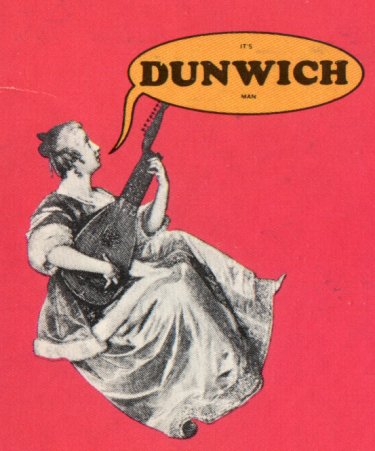 Dunwich Singles Discography
Dunwich Singles Discography Back to the Atlantic Records Story
Back to the Atlantic Records Story  Back to the Discography Listings Page
Back to the Discography Listings Page